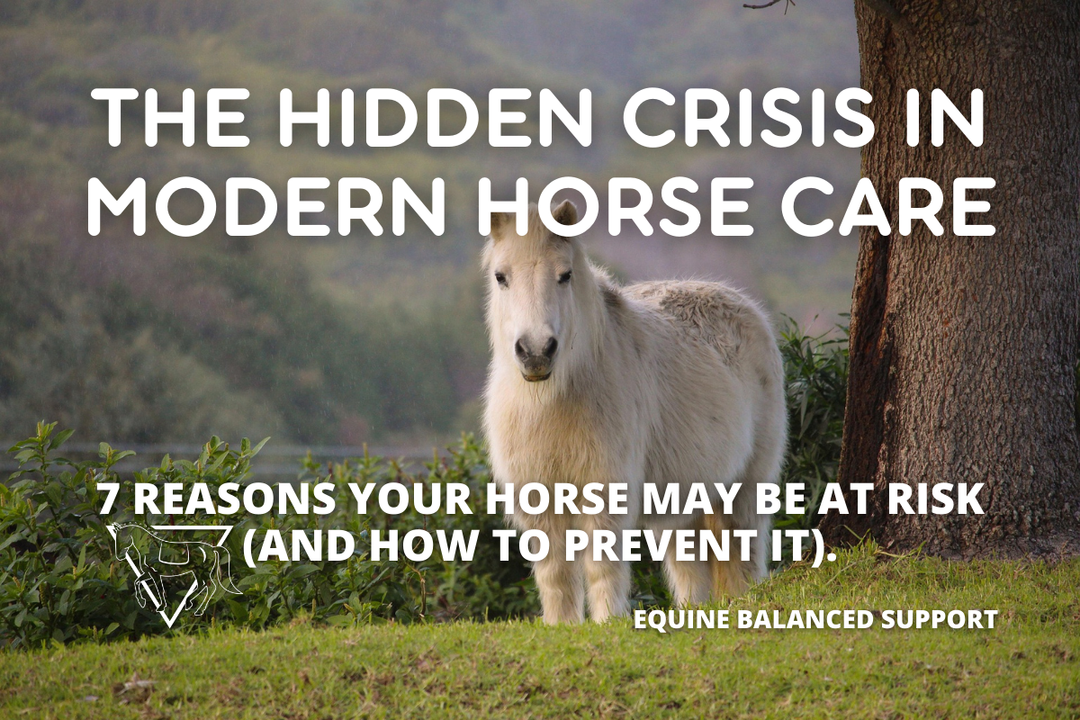Grain Is Not the Enemy of Horses

Grain Is Not the Enemy of Horses: Debunking Myths and Understanding the Facts
Important Note: EBS recommends to ALWAYS begin with a forage-based diet.
In the world of equine nutrition, few topics generate as much debate as the role of grain in a horse's diet. With growing concerns about equine metabolic disorders, laminitis, and obesity, some equestrians and horse owners have labeled grain as an unnecessary or even harmful component of feeding programs. However, this perspective often oversimplifies a complex issue. When managed appropriately and fed in moderation, grain can be a valuable and beneficial part of a horse’s diet. Here’s why grain is not the enemy of horses, and how to incorporate it responsibly.
Understanding Grain and Its Nutritional Role
Grain is a concentrated source of energy, primarily in the form of carbohydrates, but it also provides protein, vitamins, and minerals depending on the type. Common grains fed to horses include:
- Oats: High in fiber and relatively easy to digest, making them a popular choice.
- Corn: An energy-dense grain, providing more calories per pound than oats.
- Barley: A middle-ground grain in terms of energy density and digestibility.
- Commercial Grain Mixes: These blends often include grains along with essential nutrients to create balanced rations.
Horses are hindgut fermenters designed to derive energy from forages like grass and hay. However, certain situations, such as high-performance activities, lactation, growth, or recovery from illness, increase a horse’s caloric and nutrient demands. In such cases, forage alone may not supply sufficient energy, and grain becomes a useful tool to meet these needs.
The Role of Whole Grains and Organic Options
Beneficial Fiber in Whole Grains
When considering grains for your horse, whole grains like oats and barley retain their natural fiber content, which aids in digestion and slows the release of carbohydrates. In contrast, ground grains or processed feeds may lose some of this beneficial fiber, increasing the glycemic response. Whenever possible, prioritize whole grains to support digestive health and maintain a steady energy supply.
Organic and Non-GMO Options
Choosing organic and non-GMO grains is another way to enhance the quality of your horse’s diet. These options reduce the risk of exposing your horse to residues from synthetic pesticides or herbicides. Glyphosate, for example, is often used as a desiccant on wheat and other crops, which can leave chemical residues in the grain. Over time, chronic exposure to such chemicals may contribute to low-grade systemic inflammation, including in the hooves, potentially exacerbating subtle laminitic conditions.
Dispelling Common Myths About Grain
Myth 1: Grain Causes Laminitis and Founder
Grain itself doesn’t cause laminitis or founder—mismanagement does. Overfeeding grain, particularly in large meals, can overwhelm the horse’s digestive system. When undigested grain reaches the hindgut, it ferments rapidly, leading to a drop in pH (acidosis) and the release of harmful endotoxins, which can trigger laminitis. The key is moderation and proper feeding practices.
Myth 2: Grain Is Unnatural for Horses
While it's true that horses evolved to graze on grasses and other forage, they have also adapted to utilize concentrated energy sources like grains when necessary. Domesticated horses often have workloads and living environments far removed from their natural state, making some level of grain supplementation both practical and beneficial.
Myth 3: All Horses Should Avoid Grain
Not all horses require grain, but for those with higher energy demands, grain can be a critical dietary component. Growing foals, lactating mares, competitive athletes, and horses in heavy work may struggle to maintain condition and performance on forage alone. For these animals, grain can provide the additional calories and nutrients needed to thrive.
The Benefits of Grain When Fed Correctly
-
Energy Source for Performance Horses
Grain supplies readily available energy, essential for horses engaged in intense exercise or competition. Without adequate energy intake, these horses may lose weight, muscle mass, and stamina. -
Support for Growth and Development
Young, growing horses have high caloric and nutrient requirements that forage alone may not fulfill. Grains formulated for growth provide a balance of energy, protein, and micronutrients to support healthy development. -
Convenient Weight Management
Hard-keepers or horses with high metabolic rates may require calorie-dense feeds to maintain a healthy body condition. Grain is an efficient way to provide these calories without requiring excessive forage intake. -
Balanced Nutrition in Commercial Feeds
Many commercial grain-based feeds are fortified with vitamins and minerals, addressing potential gaps in forage-only diets. These blends can be tailored to specific life stages, workloads, or health conditions.
Feeding Grain Responsibly
- Feed by Weight, Not Volume: Measure grain by weight (pounds or kilograms) rather than volume, as different grains have varying densities.
- Start Low and Go Slow: Introduce grain gradually to allow the horse’s digestive system to adapt. Sudden changes in diet can upset gut microbiota and lead to colic or other digestive issues.
- Divide Grain Into Smaller Meals: Limit grain meals to no more than 0.5% of the horse’s body weight per feeding (e.g., 5 lbs for a 1,000-lb horse). Feeding multiple small meals throughout the day reduces the risk of undigested grain reaching the hindgut.
- Match Grain Type to the Horse’s Needs: Choose grains or grain-based feeds that align with your horse’s specific requirements. Performance horses may benefit from energy-dense feeds, while easy keepers might require a low-calorie balancer.
- Pair Grain With Forage: Always provide adequate forage alongside grain. Feeding hay or allowing grazing before a grain meal slows consumption and promotes proper digestion.
- Monitor Body Condition and Performance: Regularly evaluate your horse’s body condition score (BCS), weight, and performance to adjust feeding programs as needed.
When Grain Isn’t Appropriate
Not all horses benefit from grain. Horses with certain conditions, such as insulin resistance, equine metabolic syndrome (EMS), or a history of laminitis, may need carefully managed diets with limited or no grain. In these cases, alternatives like low-sugar forage, beet pulp, or specially formulated low-starch feeds are often better choices. Always consult a veterinarian or equine nutritionist for tailored recommendations.
Conclusion
Grain is not the villain it’s often made out to be—it’s a tool that, when used correctly, can enhance a horse’s health, performance, and overall well-being. The key lies in understanding your horse’s unique nutritional needs and feeding grain appropriately. By doing so, you can take advantage of the benefits grain offers while avoiding potential pitfalls, ensuring your horse leads a healthy and balanced life.





Leave a comment